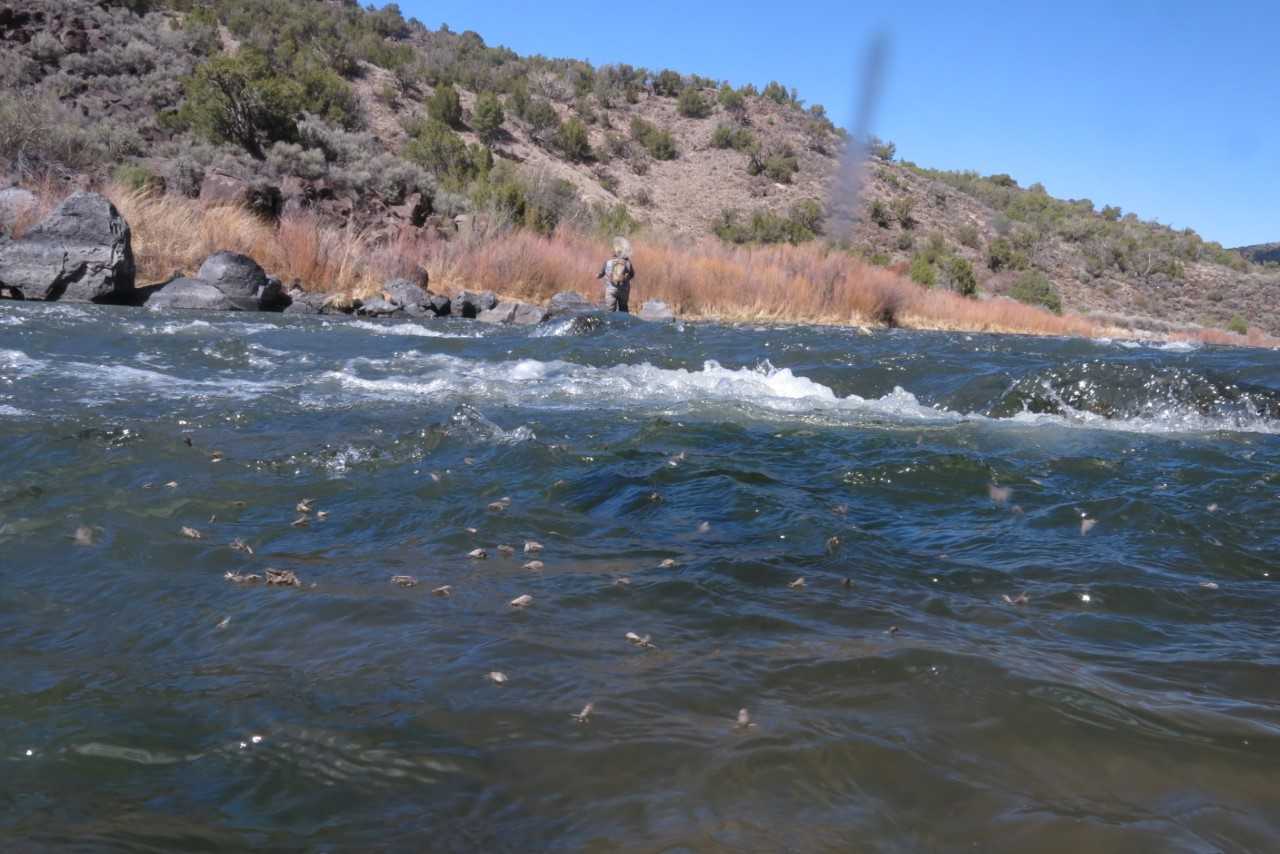By Toner Mitchell
Your best arguments are the simplest ones. Water, including anything you dump into it, flows downhill. Katrina, Sandy, Harvey and Maria comprise a trend. California and the burning mountain west comprise a trend. God didn’t create all these species so we could destroy his good work. You are sincere, yet careful about how you speak. Though beautifully descriptive, terms like “trophic cascade”, “riparian water table”, and “biodiversity” sound haughty; you must also avoid the word “resilience.” Better to speak in pictures instead of words because, after all, you and the person you’re trying to convince are in a picture together. Your best arguments come forth when you remember this.
Or so you think. Best arguments don’t matter anymore. By appearances—states opting for petroleum industry monoculture over economic diversity, our love of money over science, and political CIS (craniorectal inversion syndrome) — we’re prepared to sacrifice our children’s food and water to our fears of needed change.
To be kind, our equally strong faith in technology assures the best-intentioned among us that we can overcome these urgent challenges. We have remediated Butte and the Cuyahoga River. We have zoos and rearing facilities run by actual scientists. Hypothetically at least, we can extract carbon from the atmosphere and forcibly sequester it in the ground. Easy peasy, we only have to do it.
When? Whenever.
Assume for a moment that those remedies will work. We’ll miraculously reverse mistakes and commit to not repeating them. What will the earth look like then?
According to Debbie Downer, a mounting body of evidence suggests that our planet will be critically devoid of bugs. Studies across a wide variety of geographies have documented declines in arthropod (insects, spiders) populations of 75 to 90 percent. This data is unmitigated by the year-to-year fluctuations we expect from such reproductively successful beings. Losses have occurred across decades, a trend a recent New York Times Magazine article calls an “insect Armageddon.”
Though reasons for this collapse have been postulated, the direct cause remains elusive. I’m nevertheless willing to go out on a limb and say that it boils down to the three H’s – habitat, habitat and … habitat. Wildfire is eating it in 100,000-acre bites of trees, plants and soils. Pesticides, fungicides and herbicides are scorching at a comparable scale, as is human development and its ever-growing footprint of cleared land, artificial light and concrete.
And what of climate change?
As someone who fishes, keeps a nice woodpile, and was once rushed to the ER after being stung behind my ear, I could welcome the demise of mosquitoes, black widows, and yellowjackets. But my well-founded faith in the ecological process has me quaking in my boots. By performing a seemingly infinite variety of functions, insects provide my food. They pollenate plants eaten by me and my preferred protein sources, and not only do they feed birds, but render to soil the birds’ corpses and poop. Soil, an inch of which can take hundreds and even thousands of years to develop, is also needed for growing plants, which, by the way, are often protected by insects preying on other insects.
In my opinion, overwhelming weight must also be given to the role bugs play in feeding and medicating the souls of anglers. Trout don’t eat insects the way humans eat free-range chicken or don’t eat gluten. They’ve no Whole Foods equivalent where they can swim up to a counter and say, “Hmm, I think I’ll try your pale morning duns today. Are they fresh? Give me one thousand, please. The spinners.”
No, trout don’t eat insects out of luxury or choice. They eat them when and where they find them, because they must. Mayflies need clean water, grasshoppers need grass, and though caddisflies can thrive in water less than pure, they are mortally intolerant of water that’s not there. Like other insect killers, dry stream and lake beds are more common these days, and we know why. No insects, no trout. No fishermen.
We are living in the Anthropocene, an epoch so named for the profound influence that humans have had on the Earth’s geology (mines, dams) and ecosystems (climate change, pollution). In its short duration, the Anthropocene has produced wealth, democracy, fun iPhone apps and reality TV. It’s also seen humankind expand enormously in population, average lifespan, and well-being due to technologies and materials arising from, among other things, our harnessing of fossil fuels. But while our intelligence, technology and energy systems have produced many wonderful things, they can no more pollenate our food crops than buffer our acidifying oceans. I propose that they can’t mass sequester carbon either, certainly not if we don’t apply them in that direction.
From a life on earth perspective, the Anthropocene might have worn out its welcome. It definitely seems determined to put an end to itself, in which case I hope we still have time to change its mind. Soon, or now, or yesterday, we not only need to alter our course, but to put things back. Like bugs.
Toner Mitchell is TU’s water and habitat coordinator in New Mexico. He lives and works in Santa Fe.



